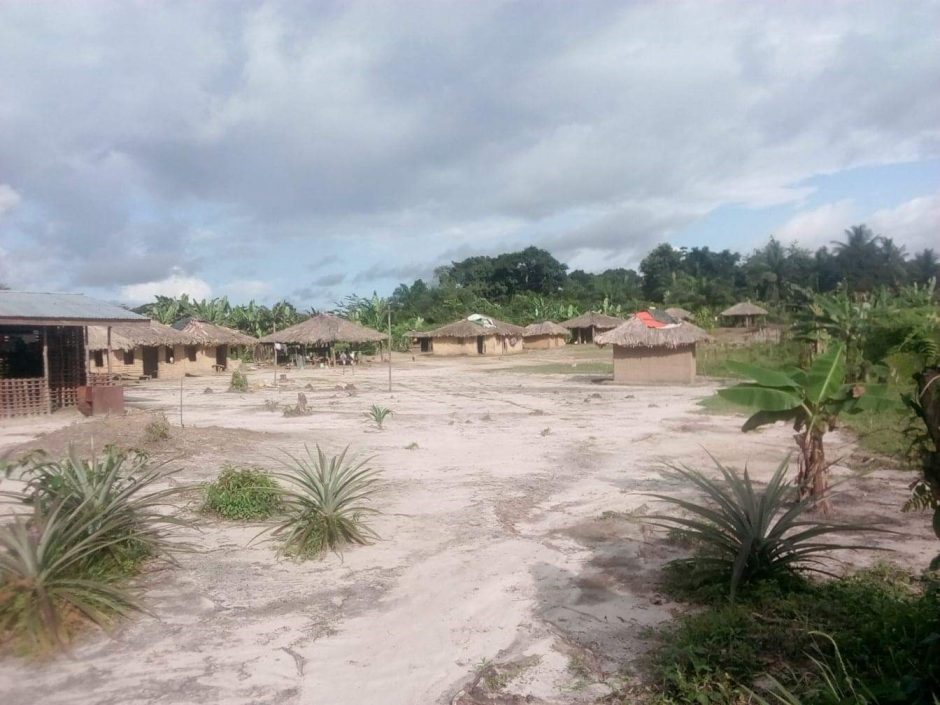
WESSEH TOWN, River Cess – Fifty-two-year-old Churchemah Wesseh says her grandson died from malaria last year because she could not afford to pay the hospital bills in time. A fisherwoman for more than 30 years, the single mother of six hardly makes ends meet these days. Her catch has declined, and the little money she generates is not sufficient to feed her family.
Wesseh and other fisherwomen of Wesseh Town have seen their livelihood threatened since miners began arriving here on the Cestos River with huge dredges five years ago. This fisherwomen’s town is gradually being drowned into poverty. The same struggle ripples across other towns on the banks of the river in the Central River Cess district.
“Since we settled here during the war, the [Cestos] River has been everything to us,” Wesseh tells The Bush Chicken from the bench at the front of her thatched house. “We had been using crawfish money to send our children to school, to hospital when they get sick, but now, all over the water, you can see big, big machines shaking the water and making it dirty.”
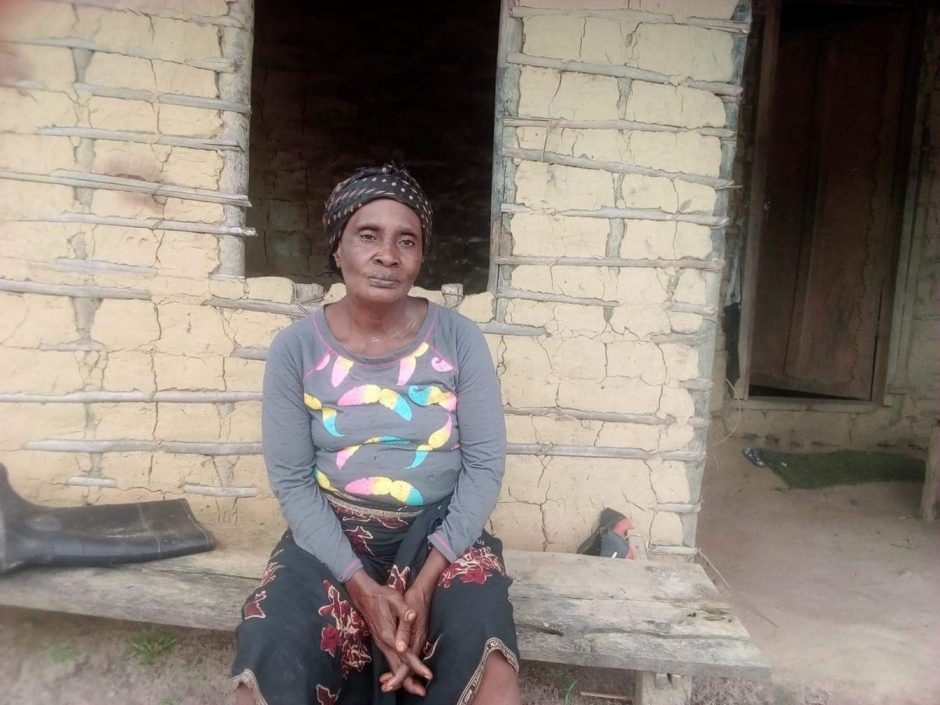
“When the water is dirty, no crawfish can enter the basket,” continues Wesseh. “Besides that, we are scared to go far off to lay our baskets because we are afraid of the miners. We lay them right around here, and nothing can get inside. When my grandson was sick, I tried for two weeks, and I could not get anything to carry him to the hospital. And that’s how he died.”
The situation is also impacting the town’s sources of safe, clean water. Muddy water from the river enters creeks used by townspeople to fetch drinking water.
Annie Zarzar, a mother of two, says she has to wake up as early as 5 a.m. each day to fetch drinking water when the river is a bit clearer, before the miners begin dredging. Other residents echo Zarzar’s plight and pollution concerns.
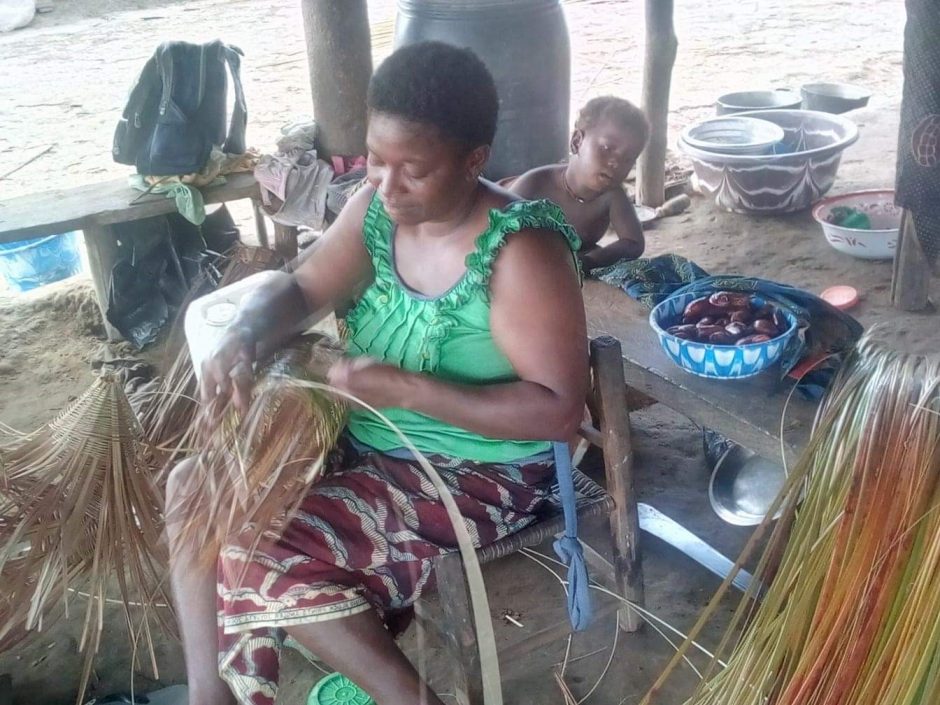
People have fished on the Cestos River for centuries, and basket making is part of the traditional culture. Locals call the river Nipoue in Kru vernacular for “the river we are searching for,” after early Kru fisherman discovered it contained an abundance of freshwater lobsters. It is one of Liberia’s major rivers, rising in the Nimba Range of Guinea, flowing south along the Cote d’Ivoire border, and then southwest through tracks of Liberian rainforest to empty into a bay of the Atlantic Ocean. It received its original name, Cestos, from Portuguese traders for the hundreds of baskets that were a mainstay of the local economy in the early 16th century.
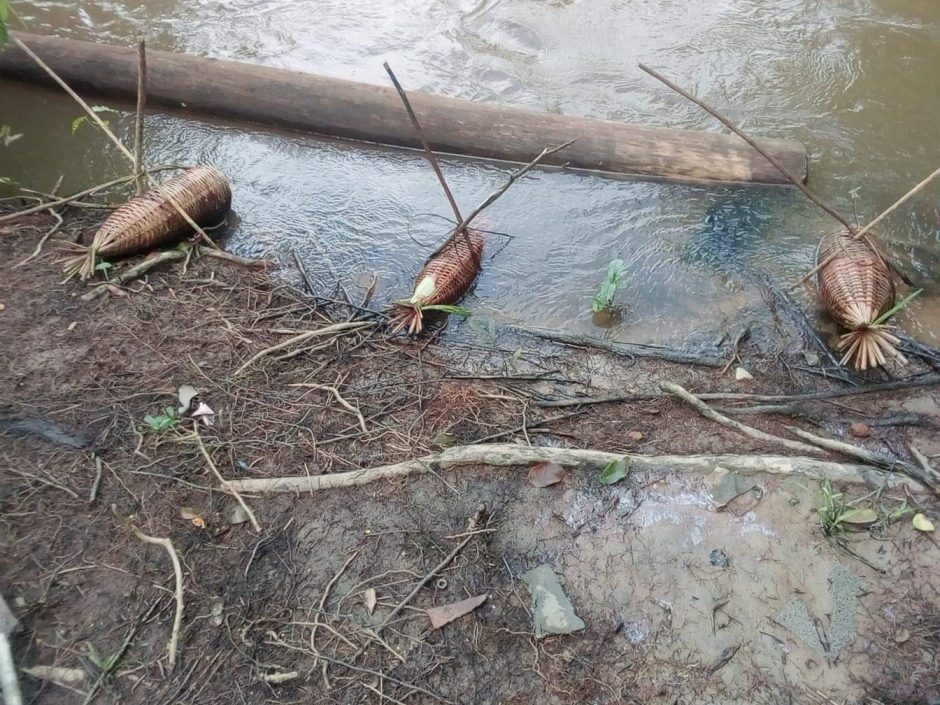
The crawfish are migrating from the area due to dredging on the river, says Richard Sambolah, a conservationist with Farmers Associated to Conserve the Environment.
“Apart from their clean and quiet environment, crawfish feed on snails and small water plants,” Sambolah tells The Bush Chicken in a mobile phone interview from Monrovia. “When the area is being dredged, they got nothing to feed on because everything over there is washed away, and when that happens, they have to leave to find a new home.”
This year, mining activities have increased in River Cess, locals say. Dozens of Ghanaian mineworkers are seen on the two major rivers, Cestos and Timbo. The sound of their dredges makes it difficult to hear anything else. The river is muddy and murky.
There are an estimated 100 Ghanaian miners in River Cess alone, according to the Liberian Immigration Service.
Official figures do not support the scale of mining on the river. There are 43 class “C” and three class “B” licensees in River Cess, according to the online repository of the Ministry of Mines and Energy. Not one of those license holders operates in the Zanflahn district, where Wesseh Town is located. In fact, there are only three in both Sam Gbarlor and Nyorwein districts, Wesseh Town’s closest neighbors.
The use of dredges is prohibited in Liberia. In October, the Ministry of Mines and Energy placed a ban on the use of the machines in any part of the country. But that ban is far from being obeyed here. Dredges are seen everywhere on the river.
Seventy-three-year-old Patrick Wlehduy, the chief elder of Wesseh Town, claims county officials are collecting money from these miners. He offers no evidence.
“If the county officials say they don’t know how these people got here, I can’t believe it,” he says. “Because they are getting money from the miners, they don’t have time for us the poor people. This is the reason they don’t want to take them from on the river. All they want is the money, but they are not concerned about what becomes of us who depend on the river for our survival.”
Elijah Kassaynee, fiscal superintendent for River Cess, denies Wlehdyu’s claims. However, he discloses the local county administration mandates the citizens of the county “to collect royalty from those mining the two [Timbo and Cestos] rivers.”
Assistant Superintendent for Development Amos G. Somah confirms Kasseynee’s assertion, saying they set the fees at US$200 per dredge.
Kofi Zar, a paramount chief in River Cess, is the current head of the committee responsible for collecting fees from the miners. Zar tells The Bush Chicken he collected up to L$90,000 (US$479) from those mining the Timbo River.
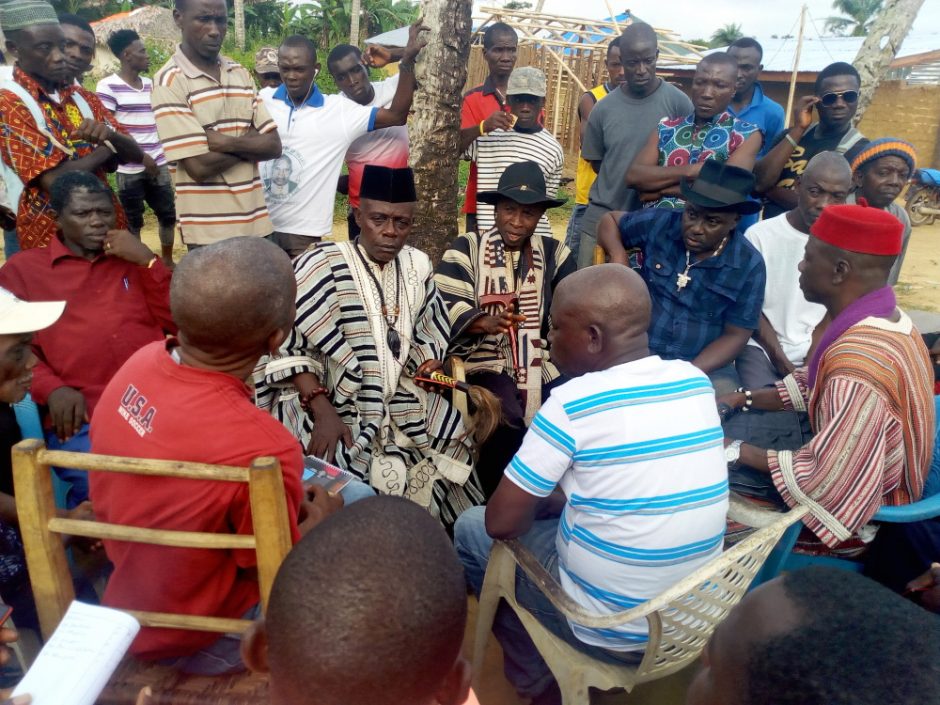
Weah Toe, the mining agent of the Yarnee Mining Agency, which controls both Yarnee and Central River Cess districts, claims he does not know anything about registration fees for dredges. “If Ghanaians [are] mining with dredges in Wesseh Town… that’s not to my knowledge,” Toe tells The Bush Chicken in a mobile phone interview from neighboring Sinoe. “I stopped all dredging activities in the county before I left, so if anyone [is] mining with dredges in Wesseh Town or any part of Kparqueh, they are doing it at their own risk.”
Medecy Hessou, director of the Liberia Geological Survey at the ministry, says illegal miners are taking advantage of the remote nature of River Cess. “What happens is that the illicit miners or these foreigners always look for weaker zones where they find less or no presence of government,” says Hessou. “And in these remote areas are where they are causing more harm.”
Illicit miners find dredging easier, less expensive and less time-consuming compared to land mining, where they use handheld tools, according to Hessou. “Mining in the river, especially if you have dredges or other machines, becomes easier because you have little or no overburden. But looking at accessibility, the miners will prefer the river over the highland, considering that the two of them have the same potential.”
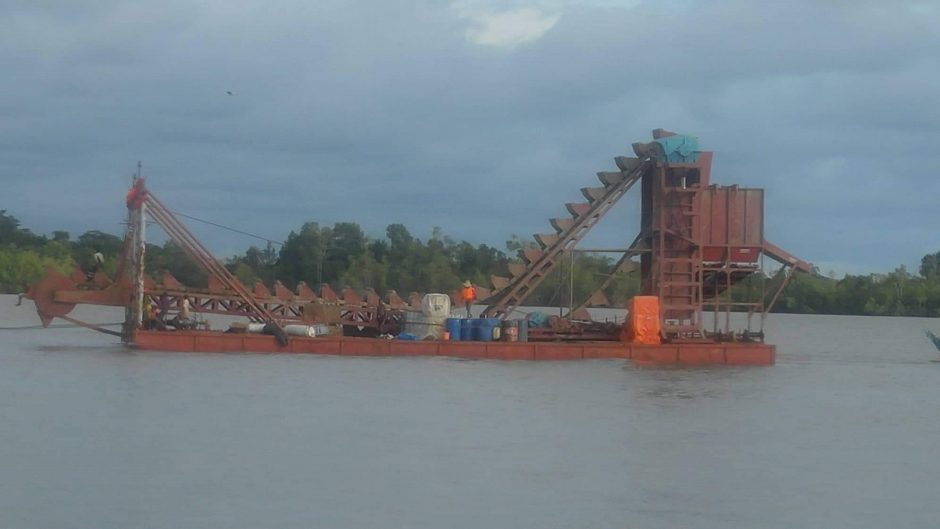
The ministry earlier this month met with superintendents of all 15 counties in Liberia to discuss how it can enforce the ban on dredging.
Whatever comes out of that meeting, residents of Wesseh Town say they want urgent actions taken so that they can return to normal life and livelihood in their environment. The future of the next generations is at risk.
“The government has to take these people from here,” says Augustine Gbiah, 29, of Wesseh Town. “We can’t continue to live this kind of life. We don’t want to take the law into our hands by burning their boats, but if the big people give us the cause, we will do it.”
This story was a collaboration with The Bush Chicken as part of the Excellence in Extractives Reporting Project. German Development Cooperation provided funding. The funder had no say in the story’s content.
